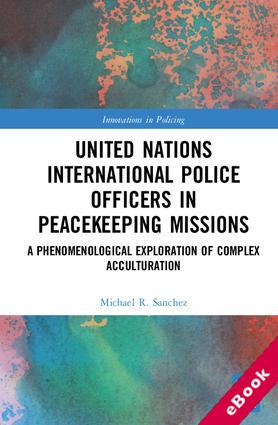
The device(s) you use to access the eBook content must be authorized with an Adobe ID before you download the product otherwise it will fail to register correctly.
For further information see https://www.wildy.com/ebook-formats
Once the order is confirmed an automated e-mail will be sent to you to allow you to download the eBook.
All eBooks are supplied firm sale and cannot be returned. If you believe there is a fault with your eBook then contact us on ebooks@wildy.com and we will help in resolving the issue. This does not affect your statutory rights.
Why do international policing missions often fail to achieve their mandate? Why do United Nations Police officers struggle when serving in foreign peacekeeping missions? United Nations International Police Officers in Peacekeeping Missions: A Phenomenological Exploration of Complex Acculturation unravels these problems to find a causal thread: When working in hyper-diverse organizations such as the United Nations Police, United Nations police officers must grapple with adjusting to a kaleidoscope of different and competing cultures simultaneously—an issue the author identifies as complex acculturation.
In this introduction to the novel concept of complex acculturation, Michael Sanchez explores the reasons behind the United Nations Police’s chronic performance troubles and explains how the very fabric of the organization contributes to its ineffectiveness. While previous research has focused on private-sector expatriate workers’ challenges when adapting to a single new culture, this timely book describes a previously unstudied phenomenon and applies this knowledge to help businesses, governments, organizations, and citizens navigate the increasingly diverse workplace of the future.
This book lays the foundation for a new area of study and provides a forward-thinking perspective that will interest multinational companies, police agencies, international relations organizations, prospective expatriate workers, and academics alike.